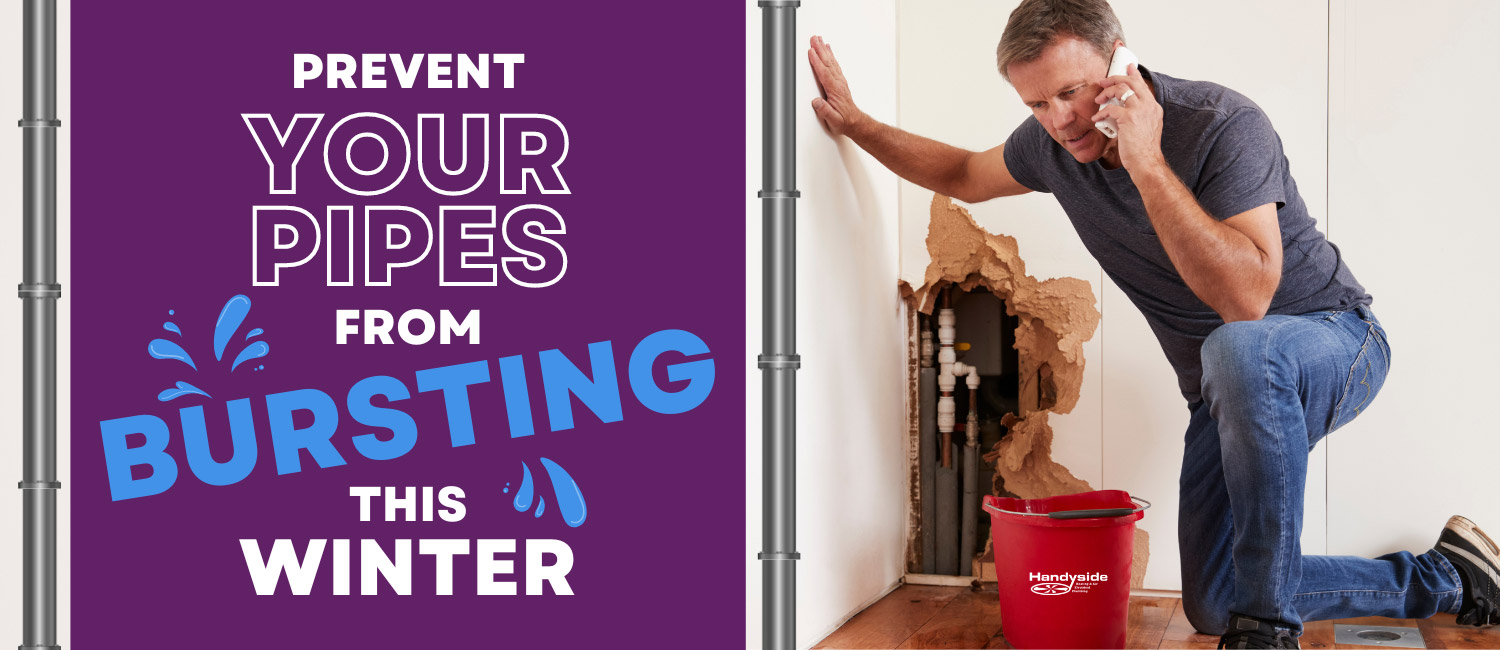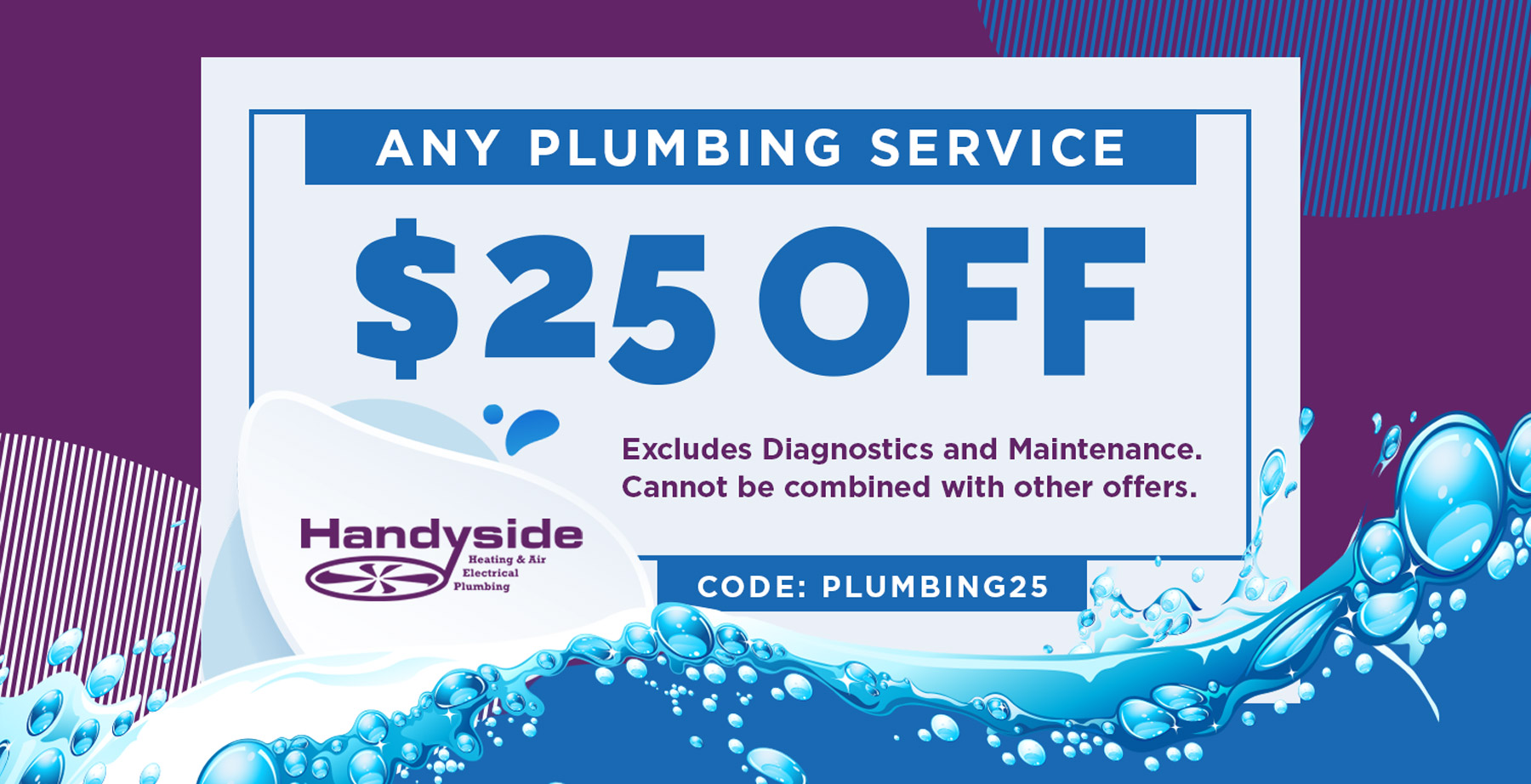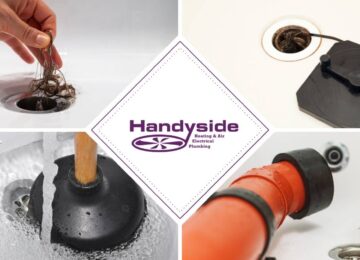Protect Your Home: Frozen water pipes can burst and do tremendous damage. Take preventive measures, especially in older homes with inadequate insulation. Fortunately, Handyside has uncovered effective ways to prevent your water pipes from freezing this winter. Don’t wait—safeguard your home today!
 Why do water pipes freeze and burst?
Why do water pipes freeze and burst?
Your home’s water pipes operate under pressure. As you may know from making ice cubes, water expands when it freezes, sometimes by up to 9%. This expansion can escalate the pressure inside a pipe from 40 pounds per square inch to a staggering 40,000 psi! Such intense pressure will find weak points, leading to pipe bursts. The real trouble arises later when the ice thaws, unleashing a flood in your house that can cause thousands of dollars in damage within minutes. To avoid this scenario, it’s crucial to prevent your pipes from freezing.
How can you prevent pipes from freezing?
- Turn up the heat
Heat your house to at least 72 degrees in winter months, especially if you’re concerned about your water pipes. If you plan to be away, don’t turn the heat off. Instead, opt for lowering the temperature slightly. Consider using a programmable thermostat to ensure the house remains heated to 72 degrees for at least part of the day.
- Open cabinet doors
Ensure proper circulation of warm air around pipes by opening cabinet doors, vanity doors, and even closet doors if pipes are located within these spaces.
- Use fans to circulate warm air
If pipes run through a room that lacks adequate heating, use fans to circulate warm air into the area.
- Keep outside doors closed
Close outside doors promptly to keep the cold out—yes, even the garage door! Ensure all doors are properly sealed with weatherstripping to prevent chilly drafts from seeping indoors.
- Disconnect garden hoses from outdoor faucets
Remember to locate and shut off the indoor valve for your outdoor faucet when removing the garden hose. This action helps prevent freezing and potential damage to the water line.
- Keep the water moving
If you’re genuinely worried about your pipes freezing, consider letting your faucets drip slightly. This continuous trickle helps alleviate pressure buildup within the pipes and reduces the likelihood of freezing.
- Invest in a permanent solution
Many homeowners never worry about their pipes freezing—and you can join them! Often, the issue lies in insulation. Pipes running through uninsulated areas like basements or attics are prone to freezing. By insulating these spaces, you retain more heat indoors, ensuring your pipes stay warm and lowering your home heating bill. Contact our Handyside professionals about adding insulation or rerouting pipes away from cold spots.
![How to Prevent Pipes From Bursting in the Winter Protect Your Home: Frozen water pipes can burst and do tremendous damage. Take preventive measures, especially in older homes with inadequate insulation. Fortunately, Handyside has uncovered effective ways to prevent your water pipes from freezing this winter. Don’t wait—safeguard your home today! Why do water pipes freeze and burst? Your home’s water pipes operate under […]](https://handysideinc.com/wp-content/uploads/2024/01/How-to-Prevent-Pipes-From-Bursting-in-the-Winter-750x420.jpg)





